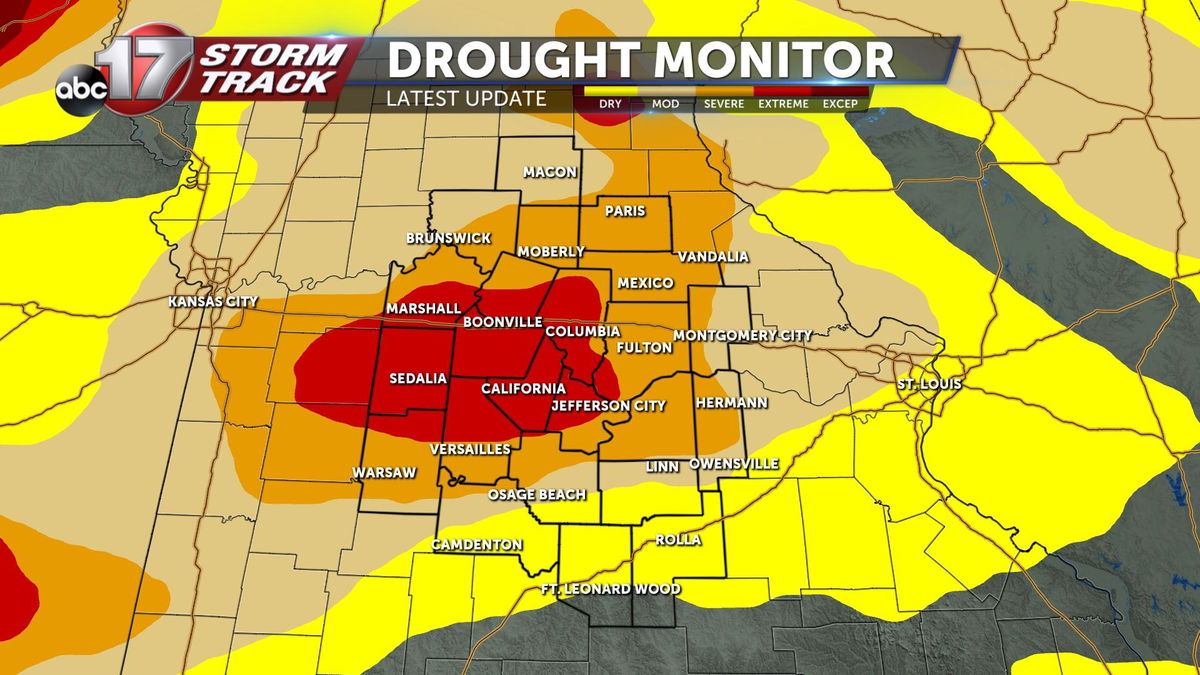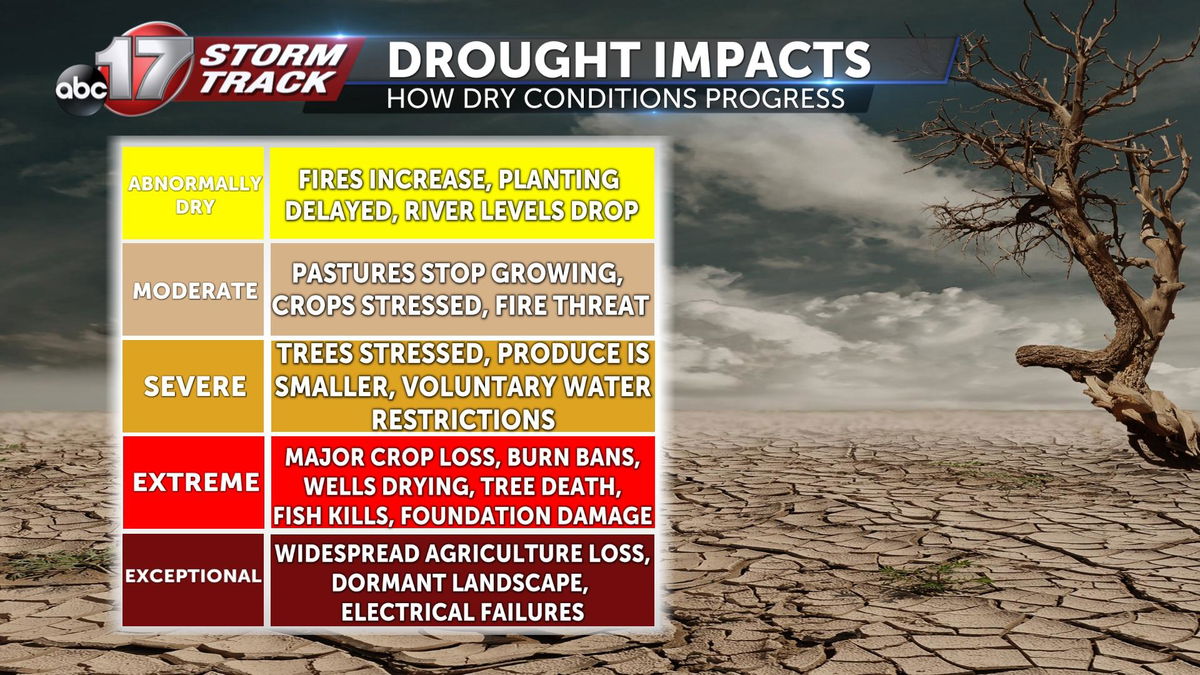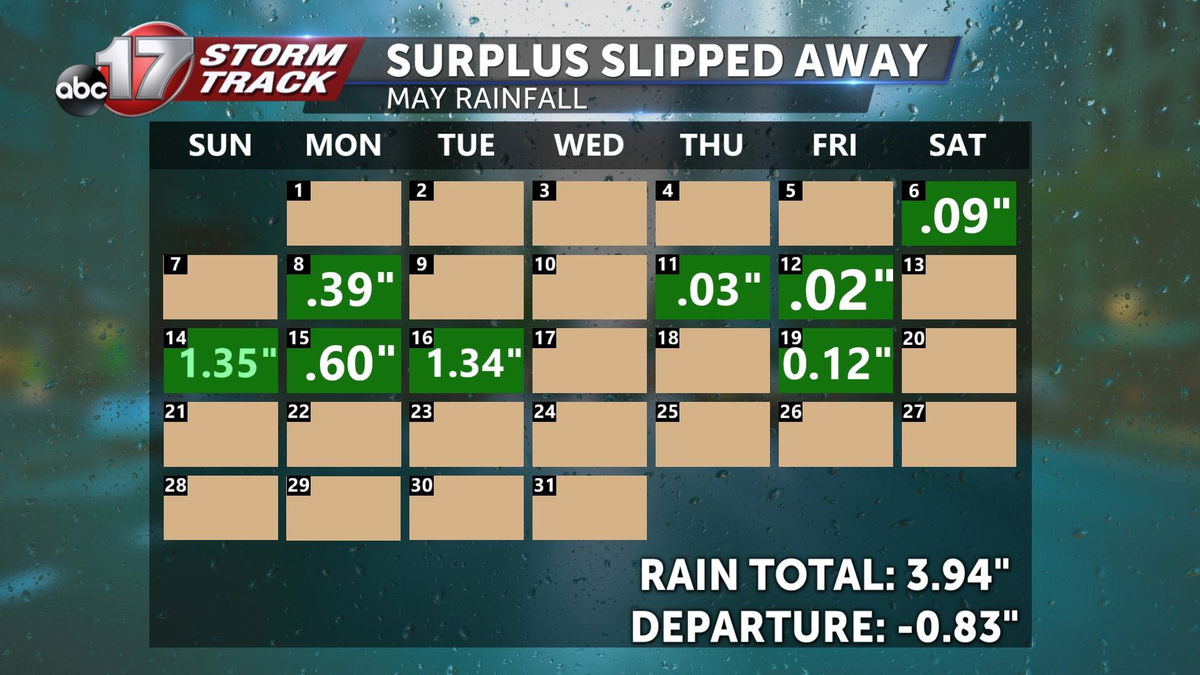Insider Blog: Drought tightens its grasp on the region
Drought has been a growing concern in mid-Missouri since late March. Now, as extreme drought has been able to keep a stronghold on some parts of the region, state leadership has stepped in.
DROUGHT STATUS
80% of the State is currently impacted by drought, with mid-Missouri bearing the brunt of it. According to the latest update of the drought monitor, Extreme drought has become more entrenched, and more widespread near Marshall, Sedalia, California, Boonville, Columbia, and Jefferson City. Severe drought stretches out to include Moberly, Paris, Mexico, Fulton, and Warsaw. Surrounding this, Moderate drought stretches from Osage Beach to Macon. The only part of the region not included in some classification of drought is the southern tip of Phelps and Pulaski counties.

Areawide, this is an increase in both intensity and coverage over recent weeks, that already showed significant drought in mid-MO.
IMPACTS
Impacts are complicated, and differ by location, but the governing organizations that put together the drought monitor typically break it down like this.

At Abnormally Dry status (yellow), likelihood of fires increase, local rivers and streams drop, and planting can be delayed. Step up a stage to Moderate (beige), and growth in pastures slows, crops get stressed, and fire risk becomes a more realistic threat. At Severe (brown/tan), trees start to see stress, produce is noticeably impacted, and water conservation is encouraged. Extreme (red) status reinforces crop stress with actual crop loss, burn bans become more likely, wells are impacted, trees begin to die, and home foundations can shift. All of this exacerbates into widespread crop loss and dormant landscapes at Exceptional drought status (dark red).
WHY
How did we get here? April was a big contributor. What is typically one of our wettest months, April brought only a half inch of rain to Columbia Regional Airport. This made it the second driest April on record for the location.


May wasn't much help either, as we landed about an inch shy of average for the month. As it sits now, we have about 6 inches of rain to make up, just to return to average, but it may not take that much to significantly improve drought.
